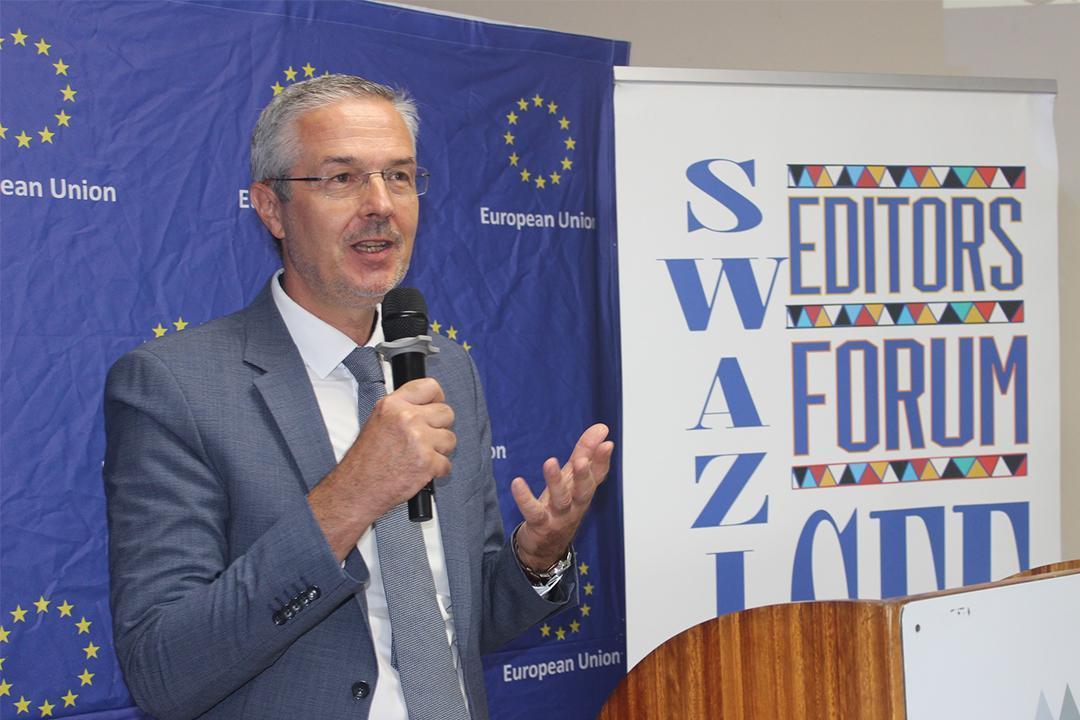Africa-Press – Eswatini. The European Union (EU) provides grants to African nations and other developing countries with the goal of fostering development and stability.
This support is rooted in a combination of altruistic motives and strategic interests, according to European Union (EU) Ambassador to Eswatini Karsten Mecklenberg, who spoke about this during the commemoration of the World Press Freedom Day at Mountain View, Mbabane.
Key Motivations for EU Grants
Economic Development:
– The EU aims to assist African countries in improving their economic conditions. A more prosperous Africa can lead to increased trade opportunities and a larger customer base for European products. Mecklenberg said Europe was also a known producer of motor vehicles, agricultural products, food stuffs, and other products. He said it would not make sense for them to keep other people poor when they would also want to sell their products to the very same people they wanted poor. Mecklenberg stated that poor people would not be able to buy their products. Therefore, it was in Europe’s best interests to ensure that funds were pumped to Africa to develop its people so that in turn, they could become their customers.
Reducing Migration:
– By investing in the development of African nations, the EU hopes to address the root causes of migration. As Ambassador Mecklenberg pointed out, helping Africans improve their living conditions can reduce the desire to migrate to Europe, thereby alleviating pressures on European countries.
Humanitarian Aid:
– The EU is committed to providing humanitarian assistance, particularly in regions affected by conflict and crisis. In 2025, the EU plans to allocate €510 million (over E10 billion) for humanitarian aid in Africa, focusing on vulnerable populations.
Political Stability:
– Instabilities, such as wars in regions like Cabo Delgado Province in Mozambique, can have direct repercussions on Europe. By contributing to development in these areas, the EU aims to promote political stability, which benefits both Africa and Europe.
Financial Contributions and Initiatives
– From 2001 to 2027, the EU plans to contribute approximately €326 million (over E6 billion) to Eswatini alone.
– The EU’s Global Gateway initiative aims to leverage €150 billion (over E3 billion) in investments in Africa between 2021 and 2027, highlighting their commitment to long-term development.
Conclusion
The EU’s grants to Africa are multifaceted, focusing on economic development, humanitarian aid, and political stability. By investing in Africa, the EU not only aims to foster growth and improve living conditions but also seeks to create a more stable and prosperous environment that benefits both continents.
Source: Eswatini Positive News – News Website
For More News And Analysis About Eswatini Follow Africa-Press







